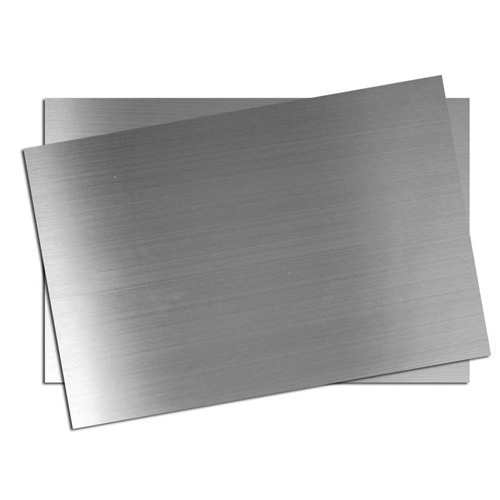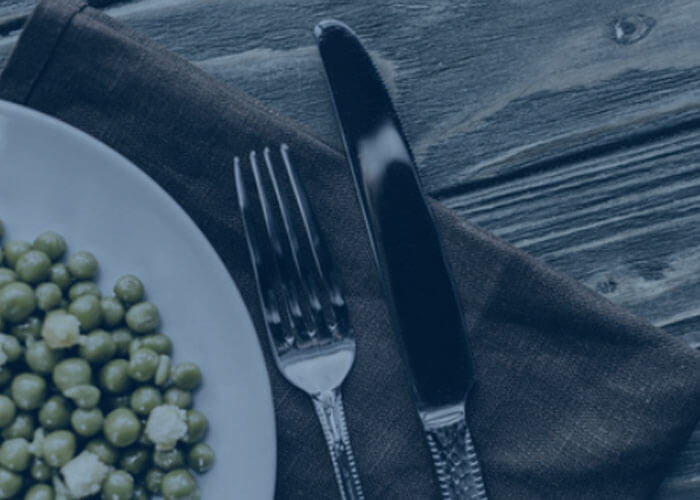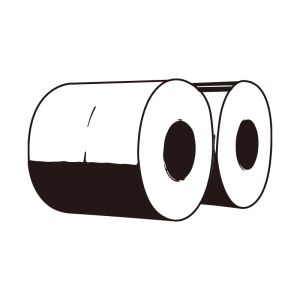420J1 Vs. Stainless steel 420J2: what’s the difference?
Generally, grade 420 belongs to the martensitic stainless steel family.
The grades of the martensitic family got their hardness from heat treatment processes such as quenching.
420J1 and 420J2 grades also get their hardness by heating at high temperatures and then quenched in oil or open air. The carbon concentration mostly determines the highest quenched hardness.
Both 420J1 and 420J2 grades of stainless are well known for their hardness and corrosion resistance.
The 420J2 is harder than 420J1 due to the high concentration of carbon in its composition. The recommended temperature for quenching is 980-1050℃, and both grades have magnetic characteristics.
After heat treatment, the hardness of 420 series steel is around HRC52-55, with average performance in terms of damage resistance. It is useful for knife production due to its ease of cutting and polishing.
Let’s discover more if you want to know more about 420J1 and 420J2 stainless steel and their difference.
What is 420J1 Stainless Steel?
420J1 possesses abrasion and corrosion resistance, as well as high hardness, and is priced in the lower than 420J2 of stainless steel.
It is appropriate for working conditions that demand standard stainless steel specifications.
The 420J1 grade can be hardened through heat treatment (quenching). This ability, combined with their high corrosion resistance, makes them suitable for a wide range of applications.

What is 420J2 Stainless Steel?
Stainless steel grade 420J2 is affordable and very corrosion-resistant. It resists corrosion in mild, home, and industrial conditions. It’s also resistant to diluted nitric acid.
420J2 Stainless Steel is made in accordance with the US ASTM standard, the everyday standard SUS420J2, and the new national standard 30Cr13.
Stainless steel grade 420J2 is noted for its good strength and reasonable impact resistance when hardened and tempered.
Material performance in different environments
Grade 420 performs well and provides excellent corrosion resistance in a variety of weather conditions. It is also resistant to ammonia, carbonic acid, crude oil, detergent solutions, vinegar, food acids, a variety of petroleum products and steam. It is available in solid and tempered forms, making it more suitable for different temperature conditions.
Strength and Durability of 420J1 Stainless Steel Vs 420J2 Stainless Steel
Tensile Strength
The tensile strength of 420J2 is more than 420J1 due to more concentration of carbon. 420 J2 is better in strength and corrosion resistance; therefore, it is used mostly where more strength and better corrosion resistance are required.
Hardness
After the quenching, the hardness of 420J2 increased more than 420J1 stainless steel. Heating stainless steel grade 420J2 to 950–1020°C (1742–1868°F) and holding it there until the temperature is constant across the piece is one way to harden it.
Yield Strength
Yield strength is the point on the stress-strain diagram where the elastic limit ends and the plastic limit begins. Hard metals often have higher yield strength than soft metals. At a maximum 0.2% offset, the yield strength of 420J1 is 440 MPa, whereas 420J2 has 540 MPa.
Chemical Composition of 420J1 Stainless Steel Vs 420J2 Stainless Steel
The chemical composition of 420J1 and 420J2 is shown in the following table:
| Grade | Carbon C % | Manganese
Mn % |
Phosphorus
P % |
Silicon
Si % |
Sulfur
S % |
Chromium
Cr % |
| 420J1 | 0.16~0.25 | 1.0 max | 0.040 max | 1.0 max | 0.030 max | 12~14 |
| 420J2 | 0.26~0.40
|
1.0 max | 0.040 max | 1.0 max | 0.030 max | 12~14 |
420J1 stainless steel vs 420J2 stainless steel – Differences in Weldability
Melting Point
420J1 and 420J2 stainless steel alloys have almost the same melting points due to the same composition, with only a difference in carbon content. These alloys have melting points between 2642 and 2750 °F and 1450 and 1510 °C.
Weight
Since both grades are identical in density and are part of the 420 series of stainless steel, the weights of 420J1 and 420J2 will be the same for a given volume.
Corrosion Resistance
Outstanding corrosion resistance is demonstrated by both grades of stainless steel. The 420J2 has more carbon contents; therefore, it is more prone to corrosion than 420J1 in more humid environments and saltwater conditions.
Welding Techniques
Welding techniques are the same for both alloys because they belong to the same 420 series of stainless steel. 420J2 and 420J1 stainless steel are easy to weld. Welding under annealed, hardened, or tempered conditions is advised against since it can lead to the creation of brittleness and cold cracking.
Cost
The price differences between these stainless steel grades are minor. 420J2 is more in demand than 410J1 due to the slightly higher carbon content and harder texture. Prices fluctuate also in accordance with shifting market values.
Weight and Density Comparison
Density of 420J1 stainless steel
Any substance’s density is determined by its mass per unit volume. The density of 420J1 stainless steel is 7.8 (g/cm³)
Density of 420J2 stainless steel
420J2 and 420J1 belong to the same series of stainless steel; therefore, both alloys have approx. same densities value, such as 7.8 (g/cm³).
Applications and Industries

Stainless steel 420J2 is mostly used for making diving knives, common kitchen knives, surgical instruments, hand tools, pump shafts, swords, and daggers.
Stainless steel 420J1 is most commonly used in food preparation equipment, blades for kitchen knives, industrial equipment blades, mechanical parts, surgical instruments, and decorative applications.
At WAYEN, we strive to be a trustworthy supplier of 420 stainless steel sheets/coils that you can rely on. With excellence in quality and service at our core, you can count on us to deliver exceptional solutions every time. Contact us today to learn more about our products and services or to request a free sample. We’ll be happy to help you find the perfect solution for your needs.
Please feel free to email us at salepc@wayenind.com or call us at 0086 13106681701/WA:0086 13590571866. We look forward to helping you with your next project!
———————————————————————————————————————————————————-
If necessary, please contact us with specifications and we will give you a quotation for reference first!❗️



